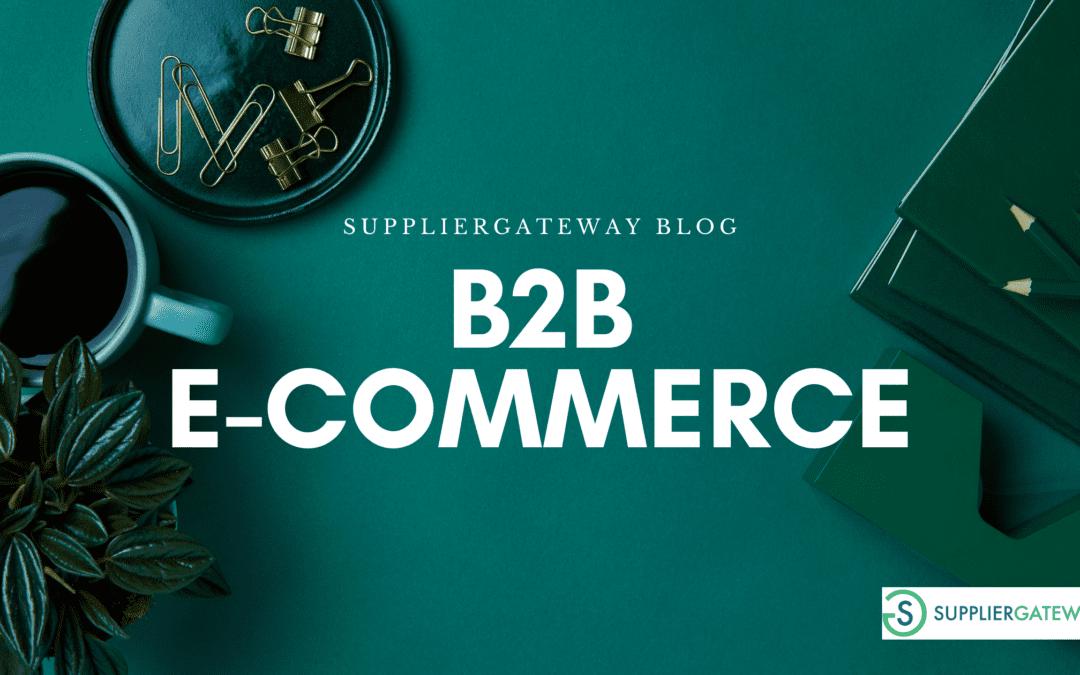 The pandemic has disrupted the way businesses operate. Those that had considered e-commerce as an afterthought are now focused on digitizing their sales process. According to Grand View Research, the B2B e-commerce market size was valued at $6.4 trillion in 2020 and is expected to grow by 18.7% by 2028.
The pandemic has disrupted the way businesses operate. Those that had considered e-commerce as an afterthought are now focused on digitizing their sales process. According to Grand View Research, the B2B e-commerce market size was valued at $6.4 trillion in 2020 and is expected to grow by 18.7% by 2028.
What Is B2B E-Commerce?
The B2B e-commerce business model is the act of buying, selling and exchanging goods and products between businesses via online channels. A marketplace is an e-commerce platform where buyers and suppliers are connected and do business. Businesses leverage online marketplaces to reach their potential customers who are looking to buy products and services.
By utilizing B2B E-Commerce, suppliers maximize efficiency, time-saving operations and have a better experience with their current buyers no matter the regions or industries.
3 Main Types of B2B E-Marketplace
-
Buyer Oriented Marketplace (e-Procurement)
There are few buyers and many suppliers involved in this model. It is most popular among big corporations that have greater purchasing power and high volume purchase. The buyer sets up their online portal and invites potential suppliers to bid on the RFQ. This model benefits buyers to lower their cost of administration and get the best price from suppliers.
As a supplier, a buyer-oriented e-marketplace helps you directly sell your products or services to a pool of potential buyers who are looking to buy.
-
Supplier Oriented Marketplace (e-Distribution)
There are many buyers and few suppliers involved in this model. This marketplace benefits supplier who is seeking to improve their sales efficiency to a large number of buyers. Suppliers are able to set their own prices based on the buyer’s demand. Usually, they are searchable by the products or services they offer.
Suppliers leverage this marketplace to increase their visibility to potential buyers and open new business opportunities.
-
Intermediary Oriented Marketplace (e-Exchange)
There are many buyers and suppliers involved in this model. It allows buyers and suppliers to communicate and transact with each other via third-party channels. There are two types of this business model, including the vertical and horizontal marketplaces. While horizontal marketplaces offer services to all industries, vertical marketplaces focus on every segment of a particular industry. The owners of these channels earn profit from a successful transaction.
Choose The Right Ecommerce Marketplace For Your Business
Every model is designed to serve the specific needs of B2B businesses. Leveraging the right e-commerce marketplace is a key to step forward, maximizing your exposure and reaping the maximum profit for your business.
At SupplierGateway, we offer a robust platform for suppliers where you can gain access to new business opportunities and connect with customers of all sizes – from Fortune 500 companies and globally recognized companies to your local health system, manufacturer or business. Our easy-to-use app will help you stay connected to the opportunities that could make all the difference to your bottom line. Get started today!


























